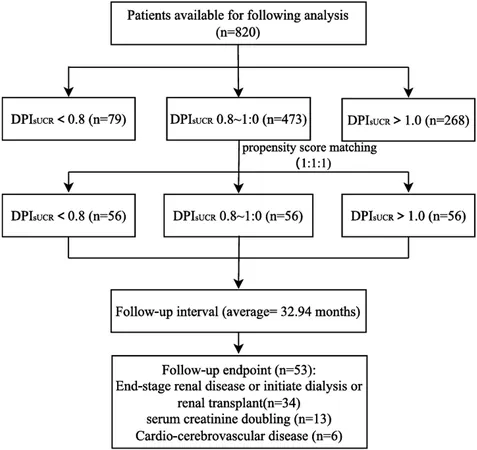
Unlocking the Secret: How Long-Term Protein Restriction Can Transform Outcomes for Diabetics with Kidney Disease!
2025-07-05
Author: Siti
Revolutionary Research Reveals Dietary Changes Can Save Lives!
A groundbreaking 10-year retrospective study has uncovered that long-term dietary protein restriction offers significant health benefits for patients suffering from Type 2 diabetes mellitus (T2DM) coupled with chronic kidney disease (CKD). Conducted across several medical institutions in Guangdong, this extensive study included 856 patients and integrated data from the U.S. NHANES database.
Why Dietary Protein Matters for Kidney Health
This research emphasized the pressing need for patients managing T2DM with CKD to carefully monitor their protein intake. By adhering to a low-protein diet (LPD), specifically below 0.8 grams per kilogram of body weight per day, patients experienced remarkable reductions in risks associated with kidney failure, dialysis initiation, and serious cardiovascular events.
Study Design and Participant Selection—A Closer Look
To ensure precise results, the study meticulously screened participants and leveraged a comprehensive methodology. It carefully excluded patients with complicating conditions, guaranteeing that only those with confirmed T2DM and CKD remained in the analysis. The final group was analyzed to assess disease progression and overall clinical outcomes.
Significant Findings: The Low-Protein Diet Advantage
Results were stunning: patients following the LPD exhibited a staggering 56% lower risk of adverse outcomes compared to their higher protein-consuming counterparts. With a focus on sustaining kidney function and preventing rapid disease progression, the data asserted that strict dietary management significantly extends patient survival and improves quality of life.
A Broader Look: The NHANES Cohort Confirms the Findings
In further validating these results, the NHANES cohort revealed similar trends, where participants who maintained a low-protein diet also showed improved health markers. The findings collectively underscore that dietary adjustments can serve as a crucial component in the management of T2DM and CKD.
Implications for Future Clinical Practices
With the volume of evidence mounting, there is an urgent call for healthcare professionals to incorporate dietary education into the standard protocols for managing T2DM with CKD. Not only does this study illuminate an essential pathway to improve patient outcomes, but it also highlights the importance of personalized dietary management within clinical settings.
Caution: Navigating the Risks of Dietary Changes
While the results are promising, it's essential to approach dietary protein restriction cautiously. Possible risks such as malnutrition or vitamin deficiencies could arise from excessively low protein diets, making it crucial for patients to work with healthcare providers to tailor their dietary intake responsibly.
In Summary: A Game-Changer in Diabetes and Kidney Care
This unprecedented study serves as an eye-opener in the realms of dietary management and chronic illness care. As more individuals grapple with the dual challenges of diabetes and kidney disease, understanding the transformative power of diet could pave the way for saving lives and enhancing health outcomes across the globe. Don't underestimate the power of food—this research shows that what’s on your plate may very well be your best ally in fighting chronic disease!



 Brasil (PT)
Brasil (PT)
 Canada (EN)
Canada (EN)
 Chile (ES)
Chile (ES)
 Česko (CS)
Česko (CS)
 대한민국 (KO)
대한민국 (KO)
 España (ES)
España (ES)
 France (FR)
France (FR)
 Hong Kong (EN)
Hong Kong (EN)
 Italia (IT)
Italia (IT)
 日本 (JA)
日本 (JA)
 Magyarország (HU)
Magyarország (HU)
 Norge (NO)
Norge (NO)
 Polska (PL)
Polska (PL)
 Schweiz (DE)
Schweiz (DE)
 Singapore (EN)
Singapore (EN)
 Sverige (SV)
Sverige (SV)
 Suomi (FI)
Suomi (FI)
 Türkiye (TR)
Türkiye (TR)
 الإمارات العربية المتحدة (AR)
الإمارات العربية المتحدة (AR)